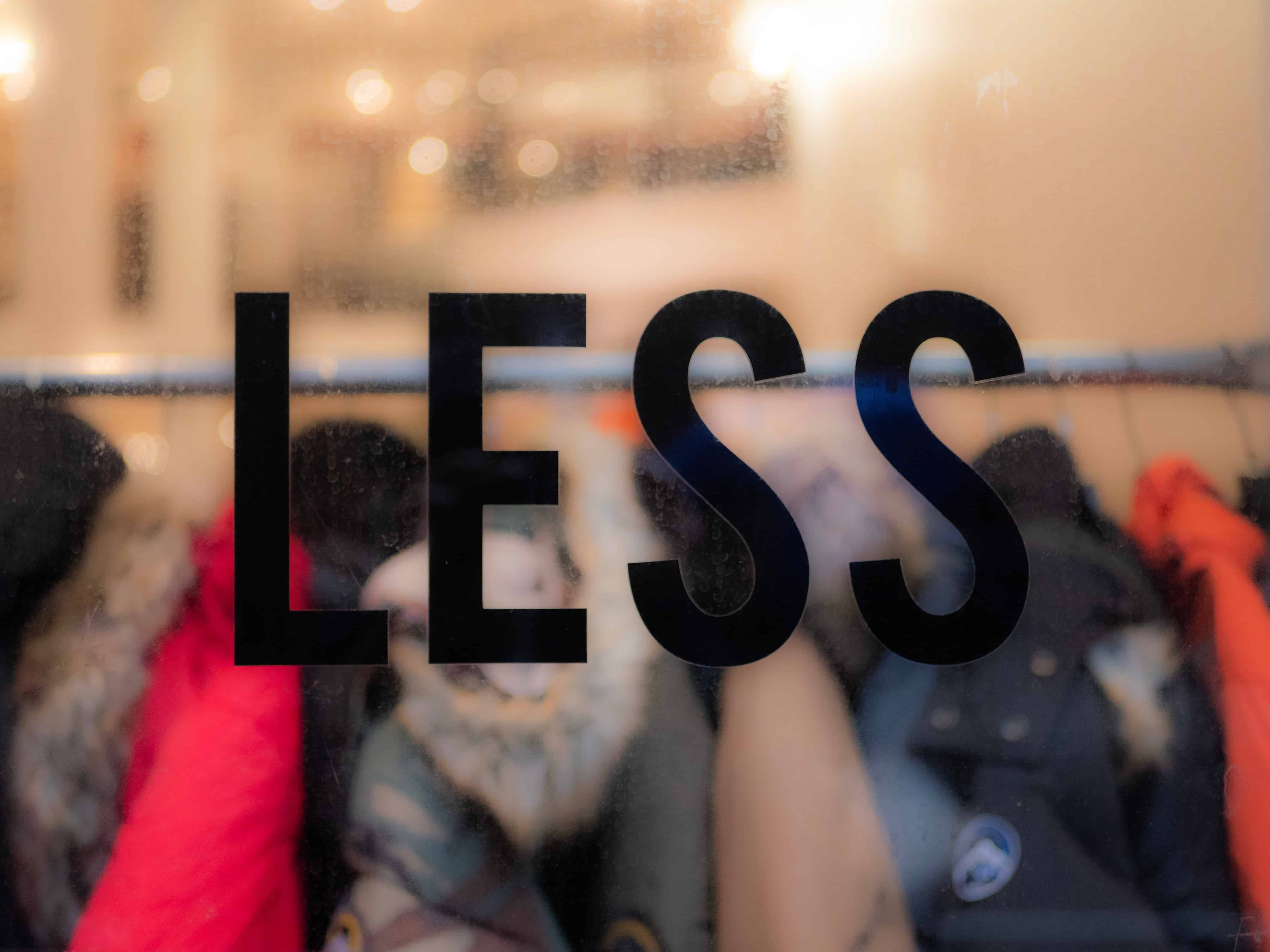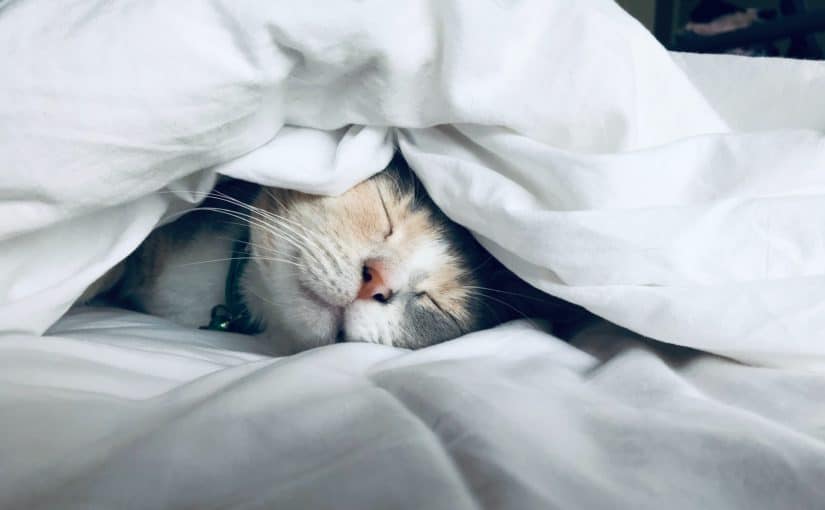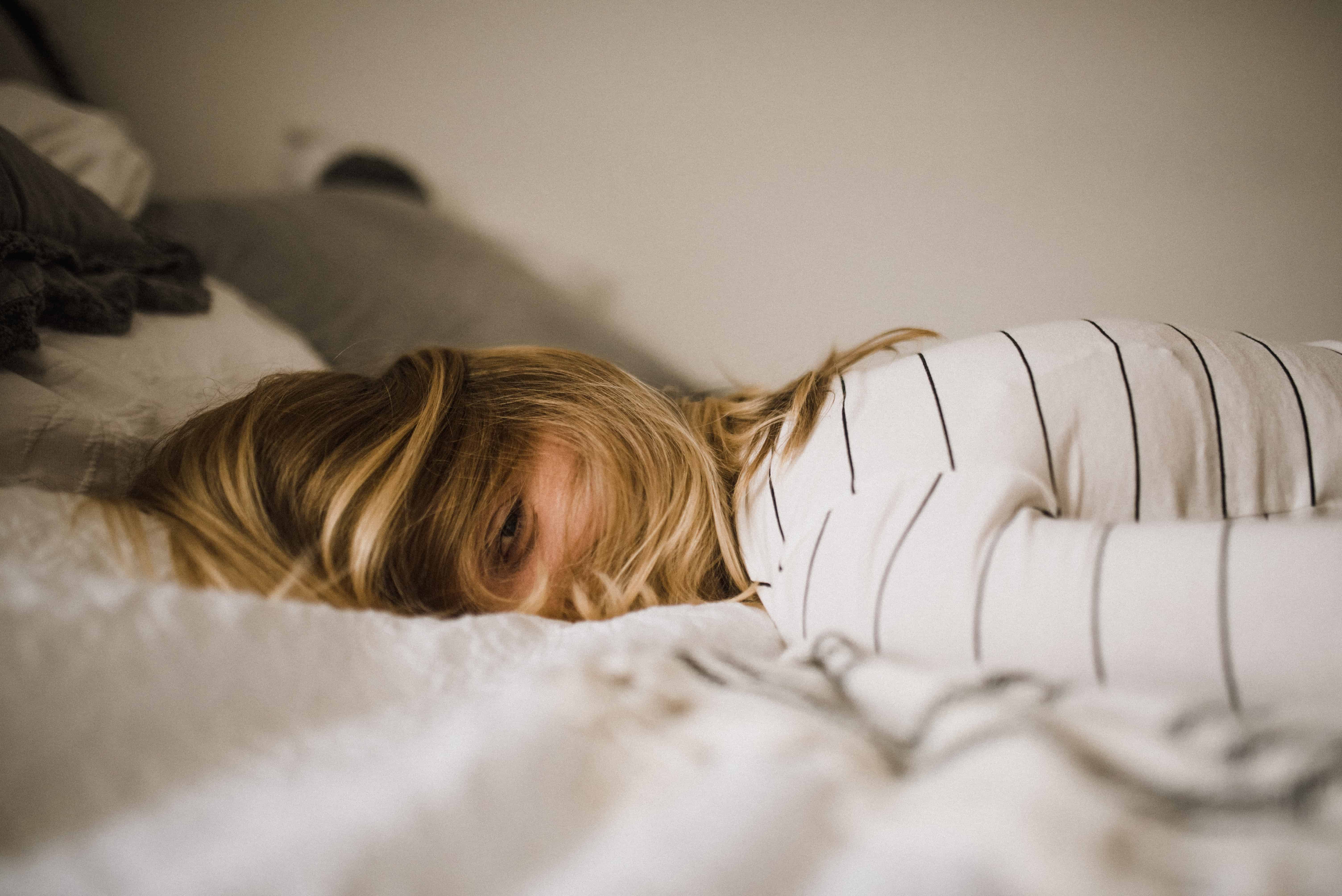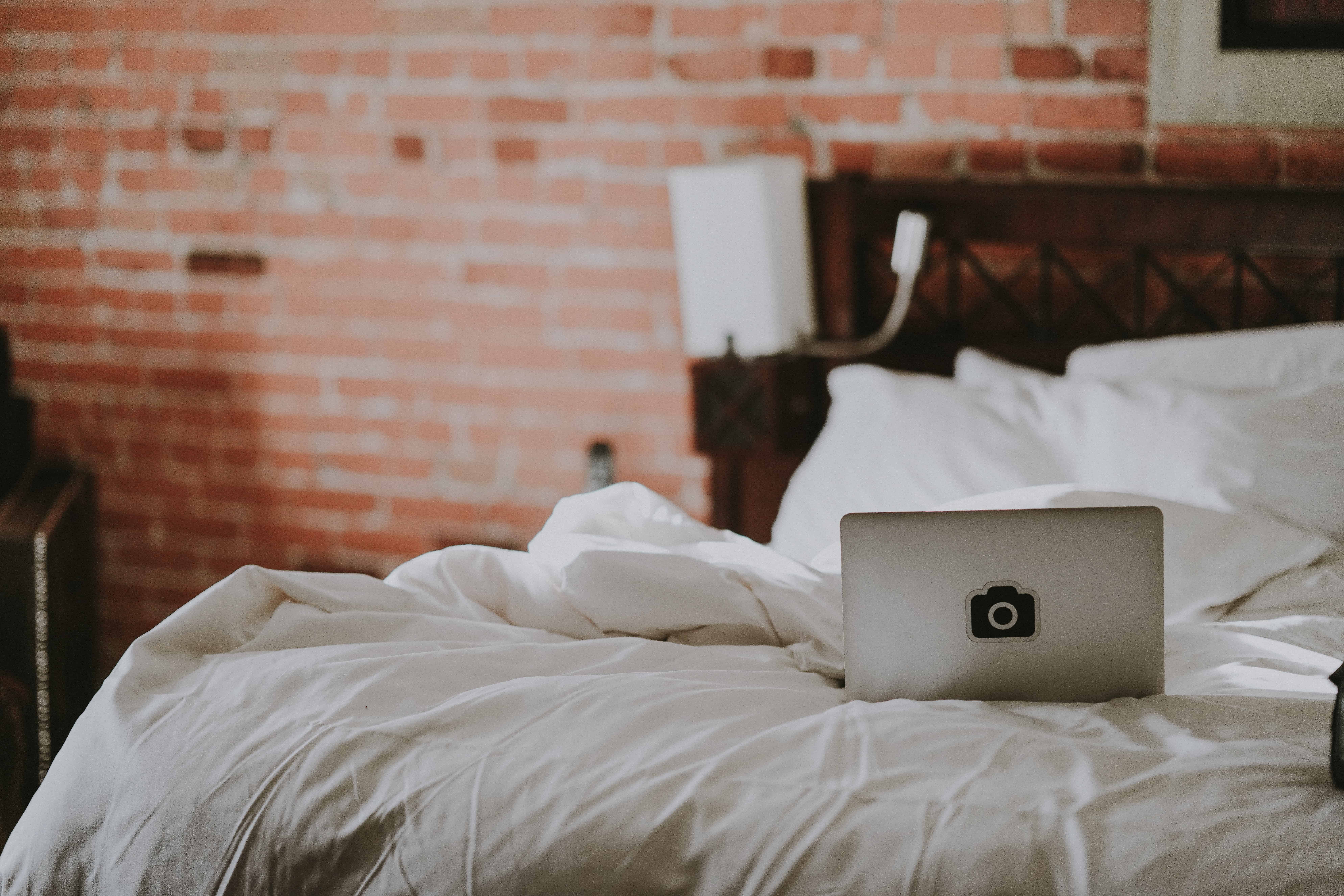Melatonin is widely used to treat difficulties with sleep and is readily available given the lack of need for a prescription. Because it is classified as a dietary supplement (not a drug) it isn’t regulated by the FDA and there aren’t any dosing parameters set. This has led to a lack of clarity about the recommended melatonin dosage for adults. The dose people take often varies by their best guess and the pill strength sold in the store they are in. What is melatonin and should you take 3mg? 10mg? The recommendations are vague so no wonder people are confused about how to use melatonin!
By the time people come to see me for a consultation, most who struggle with sleep are either already taking melatonin or have tried it. They take a wide range of doses (generally between 3-30mg but most often 5-10mg). It seems the general theory is “more is better!”
These high doses may not be needed and may actually be less effective!
What is Melatonin?

Melatonin is a naturally occurring hormone derived from serotonin and is produced in the brain’s pineal gland. It plays several roles in the body but today we will focus on its effects as a sleep hormone regulating our circadian rhythm. Melatonin helps us know when to sleep and wake.
Melatonin is controlled by light and darkness. It increases when it is dark outside (usually starting to increase 2 hours prior to bedtime) signaling the body that it is time to go to sleep. When the sun is out we don’t produce melatonin.
What does Melatonin do for sleep?
Our circadian rhythm is like a built-in clock, influencing our sleep habits. Melatonin helps set this circadian rhythm and can normalize it when we get off track due to things like jet lag or night shift work.
Meta-analysis shows melatonin:
- Decreases the time it takes to fall asleep
- Increases total sleep time
- Improves sleep quality
- The effects don’t appear to fade with continued use
- It has minimal side effects and is generally accepted as safe.
- It is used in both children and adults.
- Little dependence potential
- Many studies have supported it is effective within 1 hour.
- Melatonin does not suppress REM sleep (the part of sleep when we dream) or change sleep stages unlike what happens with other sleep aids (benzodiazepines or Ambien/Lunesta/Sonata) that target different brain receptors (GABA).
The recommended dosage of melatonin for adults:

The physiological dose (the dose our body naturally produces) of melatonin is 0.3mg when we are young adults. Melatonin levels in young adults are 10x higher during the night than during the day. The higher levels help us fall asleep initially and also help us quickly fall back to sleep when we wake during the night.
However, taking more melatonin does not necessarily translate to additional sleep. Several studies report that low dose melatonin works better than higher doses.
MORE MELATONIN DOES NOT MEAN MORE SLEEP
Dosing recommendations vary but low-dose is generally considered between 0.2-1mg. Several articles recommend 0.2-0.5mg after the 1mg dose was not shown to be more effective than 0.5mg.
Despite these studies supporting low-dose melatonin, strengths generally available in stores are between 3-10mg. It takes effort to find a 1mg dose and I have only seen lower doses offered online in liquid form.
Here is what we use in my house: [amazon_link asins=’B004DGL3BC’ template=’ProductCarousel’ store=’drmelissawelb-20′ marketplace=’US’ link_id=’3b4c4a03-c5ef-4086-b01b-3a359756632b’]
A higher dose of melatonin may actually make sleep worse!
Higher doses can cause some users to become insensitive to the effects of melatonin because the melatonin receptors essentially turn off when exposed to high amounts.
Per a Touch Neurology article:
Very high doses may also desensitize melatonin’s receptors in the brain, subsequently diminishing melatonin’s efficacy in promoting sleep.
Although side effects are generally mild, much larger doses can cause morning grogginess, lower body temperature, and increased prolactin.
Melatonin and Aging
Production of melatonin decreases with age as our pineal gland gets calcified and less able to produce melatonin. Because of this melatonin has been studied in older adults to see if replacement can improve total sleep time and sleep efficiency (both of these are reduced in aging).
In a study of adults over 50, a dose of 0.3mg was shown to be effective. Doses of 0.2-0.5 were shown to restore nightly levels to those of young people for several hours.
Because the effect may not be maintained through the night, some people take another dose when they wake in the middle of the night to help maintain sleep for the rest of the night.
Using electronics at night changes melatonin release!
You may have heard the recommendations to avoid using any electronics starting 2 hours before bed as part of sleep hygiene recommendations. The reason for this is because the blue light emitted by screens (tv, computer, phone, etc) suppresses the rise in melatonin levels making it more difficult to fall asleep.
2 options for people who don’t want to avoid using electronics at night:
- Use blue light blocking glasses in the evening. Here is an example of 2 highly rated pairs: [amazon_link asins=’B00RJ3OYWG,B01GNO3G48′ template=’ProductCarousel’ store=’drmelissawelb-20′ marketplace=’US’ link_id=’85fb8656-dfeb-48a7-bc07-5393bd142c97′]
- Put your screen on “night-mode”.
There isn’t a ton of good science on the use of blue light glasses (there are many unfounded claims on social media regarding the benefits of daytime usage to prevent eye strain, migraines, etc) but the idea behind blocking it in evening (blue light is a wavelength of light that blocks melatonin) makes sense with minimal cost to try.
3 Pointers for how to use melatonin and recommended melatonin dosage for adults:

****Important: These recommendations do not constitute medical advice or a treatment relationship. They are here to provide you with education so you can discuss if melatonin usage if right for you with your own doctor.****
- Before buying a 10mg pill of melatonin consider trying a low-dose first (0.2-0.5). Several studies have shown low dose to be more effective and it mimics the natural levels that are released in our bodies. With low dose, there is less chance to feel groggy the next day. Get liquid melatonin for easier titration of the dose.
- If you have been taking a higher dose and find it is not effective, give your body time to allow the melatonin receptors to function properly again (remember they can shut themselves down when faced with extra melatonin). Then retry melatonin at low-dose.
- If you struggle with waking and having difficulty falling back to sleep in the middle of the night consider trying a 2nd low-dose of melatonin to see if you are able to stay asleep more effectively (as long as you don’t get daytime sedation).
- Consider using blue light blocking glasses in the evening when using electronics. Given the current culture of constant connectedness, the recommendations to eliminate electronics for 2 hours prior to bed are generally not popular or followed.
What are your experiences using melatonin? Have you tried low-dose and found it to be effective?
My most popular sleep articles for you to enjoy (if you don’t like them maybe they will at least put you to sleep?):
8 Great Options to Treat Insomnia (Without Medication)
The Truth About Alcohol and Sleep
Coffee before bedtime? How does caffeine affect sleep?
Sleep and aging: What happens to our sleep and how to make it better
Don't miss another post!

Subscribe to get our latest content by email.







Wow! Had no idea the recommended dose was so low. Thanks for sharing this.
You have convinced me. Genius!!
Thank you, this is very helpful. It is quite often the case that less is more.
It’s amazing how little can be effective! The paradox of higher doses being less effective is not well known. Thank you for sharing!
Thanks, Melissa! Very educational. I talk with my patients about sleep a lot! Will definitely recommend lower doses and trial of repeat dosing if effects don’t last a full night. Love your articles. Keep up the great work!
Your welcome, Gretchen. Glad you found it helpful and hope your patients will benefit!
I was surprised to learn about the paradox also. A little goes a long way!
Good stuff in here, Melissa! Love to see you writing about sleep!
Thanks Lynelle!
This has all been very helpful to me and hopefully it works!
Hope you get some rest!
I adored your content, the whole post is written very well. I have been searching for informative regarding the sleep subject and this really helped me. I have always struggled with getting a good nights rest I am not sure why either. Sleep tablets have always made me feel on edge as they can have side effects. Thank you again stay safe and wishing you a lovely day.